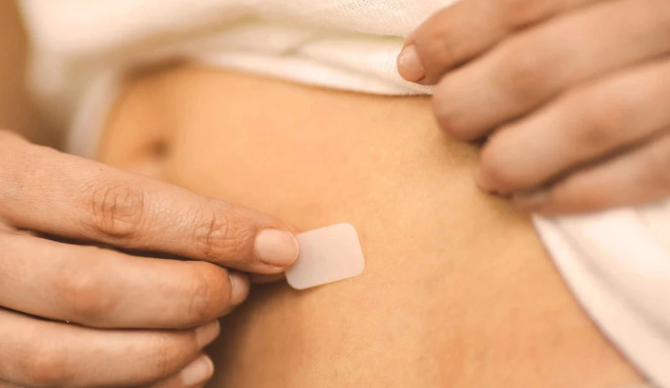Let’s talk about the double standard in women’s health — specifically, menopause and hormone therapy. Because the hypocrisy is glaring, and quite frankly, it’s time we call it out.

We Don’t Question Other Forms of Medicine — So Why This?
When your vision declines, you get glasses or contacts.
When your joints fail, you’re offered a knee replacement.
When your thyroid slows, you’re prescribed medication — often for life — without hesitation.
When your teeth wear down, you get dentures. No shame. No stigma. No resistance.
But when your ovaries retire, your hormones tank, and you start experiencing hot flashes, insomnia, depression, anxiety, painful sex, brain fog, joint pain, and increased risks for heart disease, osteoporosis, and dementia…
You’re often told:
- “Well, that’s just a normal part of aging.”
- Or worse: “Sorry, hormone therapy is unnatural — you’ll just have to tough it out.”
Let’s be clear: there is nothing natural about suffering for 30 to 40 years in a state of hormone deficiency.
And in my opinion, replacing the hormones your body has made your entire life is far more “natural” than being prescribed 5–10 different medications to manage the fallout — blood pressure pills, statins, osteoporosis drugs, antidepressants, sleep aids, blood sugar meds, and beyond.
We’re Living Longer — But Our Hormones Didn’t Get the Memo
The average woman today will spend one-third to one-half of her life post-menopausal. Our life expectancy has increased dramatically over the last century, but our ovaries haven’t evolved to keep up. They still shut down production around age 50 — leaving us with decades of living in a biologically altered state.
That state impacts everything:
- Mood
- Memory
- Bone density
- Cardiovascular health
- Sexual function
- Sleep quality
- Metabolism
And yet, hormone therapy — the most effective treatment for menopausal symptoms and long-term health protection when started at the right time — is still treated with fear, confusion, and outdated bias.
The Real Problem? Most Doctors Aren’t Trained in Menopause
Here’s something most women don’t know until it’s too late:
The average doctor receives little to no training in menopause care.
That’s not an opinion — it’s a fact. Most medical schools devote less than a handful of hours to menopause education, if it’s covered at all.
So when you show up to your doctor’s office struggling with symptoms that affect your relationships, your career, and your quality of life, there’s a good chance they won’t know how to help you.
Instead of referring you to a menopause-informed provider, they often dismiss your symptoms. They tell you it’s just stress. Or aging. Or “the new normal.”
They might hand you an antidepressant or suggest yoga — which has its place, but it’s not a replacement for actual hormonal care.
Hormone Therapy: Not Fringe. Not Dangerous. Just Misunderstood.
The fear around hormone therapy stems largely from the Women’s Health Initiative (WHI) study published in 2002 — a study that has since been widely misinterpreted and walked back by many of the researchers themselves. Modern hormone therapy is safer, more individualized, and evidence based.
For most healthy women under 60 or within 10 years of menopause, the benefits of hormone therapy far outweigh the risks.
Benefits include:
- Relief from vasomotor symptoms (hot flashes, night sweats)
- Improved sleep and mood
- Bone protection
- Cognitive support
- Significantly lower all-cause mortality — up to 39% when started before age 60 or within 10 years of menopause, with coronary heart disease risk reduced by about 32%
- Estimates of overall mortality reduction up to 30%, supported by multiple meta-analyses
- Reduced risk of new-onset type 2 diabetes by 20–30% through improved insulin sensitivity and glucose metabolism
- Potential dementia risk reduction of ~32%
And with bioidentical hormones, you’re simply replacing a small, physiologic amount of what your body used to make naturally every single day. That’s not unnatural. That’s smart medicine.
It’s Time to Check the Bias and Raise the Standard
So why is hormone therapy still so controversial? Why are women told to accept suffering as a rite of passage? Why do we normalize depletion, dysfunction, and disconnection for a generation of women who are still raising kids, leading companies, caring for aging parents — and trying to stay healthy themselves?
It’s not acceptable.
And it’s not empowering.
It’s medical gaslighting, and it’s time we stop tolerating it.
Women deserve:
- Accurate information
- Access to informed providers
- Safe, effective treatment options
- The freedom to advocate for their own care
- And the chance to feel like themselves again
Final Thoughts: You Don’t Have to Suffer
If you’re in the thick of menopause or perimenopause and you’re not feeling like yourself, you’re not crazy and you’re not alone. There are answers. There are options. And you absolutely deserve support.
As a menopause coach, I help women navigate this transition with clarity, confidence, and a plan — whether that includes hormone therapy or not. But we start by questioning outdated narratives and creating space for real solutions.
Because thriving in midlife isn’t radical.
It’s necessary.
Sources
- Salpeter SR, et al. Meta-analysis: effect of hormone-replacement therapy on components of the metabolic syndrome in postmenopausal women. Ann Intern Med. 2006. PMCID: PMC9178928
- Boardman HM, et al. Hormone therapy for preventing cardiovascular disease in post-menopausal women. Cochrane Database Syst Rev. 2015. PMCID: PMC9178928
- Salpeter SR, et al. Bayesian meta-analysis of hormone therapy and mortality in younger postmenopausal women. Am J Med. 2009. Link
- Hodis HN, et al. Menopausal hormone therapy and diabetes prevention. Menopause Learning Center. PDF
- Gong Y, et al. Hormone therapy and dementia: systematic review and meta-analysis. Front Aging Neurosci. 2023. Frontiers